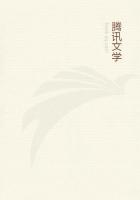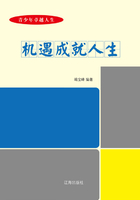It is printing. Let the reader make no mistake; architecture is dead; irretrievably slain by the printed book,--slain because it endures for a shorter time,--slain because it costs more. Every cathedral represents millions. Let the reader now imagine what an investment of funds it would require to rewrite the architectural book; to cause thousands of edifices to swarm once more upon the soil; to return to those epochs when the throng of monuments was such, according to the statement of an eye witness, "that one would have said that the world in shaking itself, had cast off its old garments in order to cover itself with a white vesture of churches." ~Erat enim ut si mundus, ipse excutiendo semet, rejecta vetustate, candida ecclesiarum vestem indueret~. (GLABER RADOLPHUS.)A book is so soon made, costs so little, and can go so far!
How can it surprise us that all human thought flows in this channel? This does not mean that architecture will not still have a fine monument, an isolated masterpiece, here and there. We may still have from time to time, under the reign of printing, a column made I suppose, by a whole army from melted cannon, as we had under the reign of architecture, Iliads and Romanceros, Mahabahrata, and Nibelungen Lieds, made by a whole people, with rhapsodies piled up and melted together. The great accident of an architect of genius may happen in the twentieth century, like that of Dante in the thirteenth. But architecture will no longer be the social art, the collective art, the dominating art. The grand poem, the grand edifice, the grand work of humanity will no longer be built: it will be printed.
And henceforth, if architecture should arise again accidentally, it will no longer be mistress. It will be subservient to the law of literature, which formerly received the law from it. The respective positions of the two arts will be inverted. It is certain that in architectural epochs, the poems, rare it is true, resemble the monuments. In India, Vyasa is branching, strange, impenetrable as a pagoda. In Egyptian Orient, poetry has like the edifices, grandeur and tranquillity of line; in antique Greece, beauty, serenity, calm; in Christian Europe, the Catholic majesty, the popular *****te, the rich and luxuriant vegetation of an epoch of renewal.
The Bible resembles the Pyramids; the Iliad, the Parthenon;Homer, Phidias. Dante in the thirteenth century is the last Romanesque church; Shakespeare in the sixteenth, the last Gothic cathedral.
Thus, to sum up what we have hitherto said, in a fashion which is necessarily incomplete and mutilated, the human race has two books, two registers, two testaments: masonry and printing; the Bible of stone and the Bible of paper. No doubt, when one contemplates these two Bibles, laid so broadly open in the centuries, it is permissible to regret the visible majesty of the writing of granite, those gigantic alphabets formulated in colonnades, in pylons, in obelisks, those sorts of human mountains which cover the world and the past, from the pyramid to the bell tower, from Cheops to Strasburg.
The past must be reread upon these pages of marble. This book, written by architecture, must be admired and perused incessantly; but the grandeur of the edifice which printing erects in its turn must not be denied.
That edifice is colossal. Some compiler of statistics has calculated, that if all the volumes which have issued from the press since Gutenberg's day were to be piled one upon another, they would fill the space between the earth and the moon;but it is not that sort of grandeur of which we wished to speak. Nevertheless, when one tries to collect in one's mind a comprehensive image of the total products of printing down to our own days, does not that total appear to us like an immense construction, resting upon the entire world, at which humanity toils without relaxation, and whose monstrous crest is lost in the profound mists of the future? It is the anthill of intelligence. It is the hive whither come all imaginations, those golden bees, with their honey.
The edifice has a thousand stories. Here and there one beholds on its staircases the gloomy caverns of science which pierce its interior. Everywhere upon its surface, art causes its arabesques, rosettes, and laces to thrive luxuriantly before the eyes. There, every individual work, however capricious and isolated it may seem, has its place and its projection.
Harmony results from the whole. From the cathedral of Shakespeare to the mosque of Byron, a thousand tiny bell towers are piled pell-mell above this metropolis of universal thought. At its base are written some ancient titles of humanity which architecture had not registered. To the left of the entrance has been fixed the ancient bas-relief, in white marble, of Homer; to the right, the polyglot Bible rears its seven heads. The hydra of the Romancero and some other hybrid forms, the Vedas and the Nibelungen bristle further on.
Nevertheless, the prodigious edifice still remains incomplete.
The press, that giant machine, which incessantly pumps all the intellectual sap of society, belches forth without pause fresh materials for its work. The whole human race is on the scaffoldings. Each mind is a mason. The humblest fills his hole, or places his stone. Retif dè le Bretonne brings his hod of plaster. Every day a new course rises. Independently of the original and individual contribution of each writer, there are collective contingents. The eighteenth century gives the _Encyclopedia_, the revolution gives the _Moniteur_. Assuredly, it is a construction which increases and piles up in endless spirals; there also are confusion of tongues, incessant activity, indefatigable labor, eager competition of all humanity, refuge promised to intelligence, a new Flood against an overflow of barbarians. It is the second tower of Babel of the human race.

